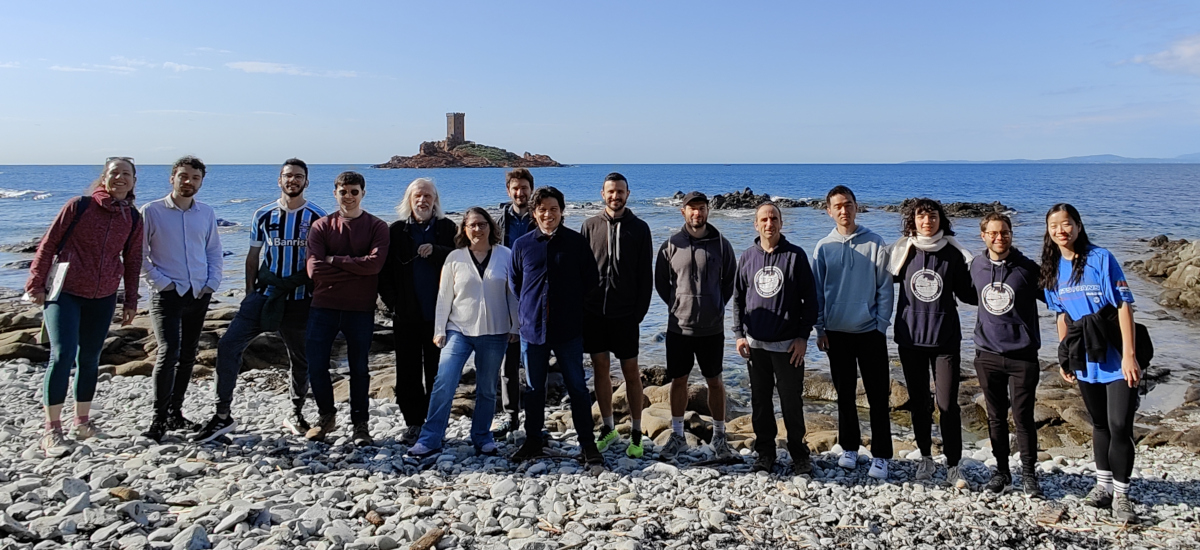Inria Challenge FedMalin (November 2022 – November 2026)
- Project Title: FEDerated MAchine Learning over the INternet
- Coordinator: Giovanni Neglia and Aurélien Bellet (Inria team MAGNET)
In many use-cases of Machine Learning (ML), data is naturally decentralized: medical data is collected and stored by different hospitals, crowdsensed data is generated by personal devices, etc. Federated Learning (FL) has recently emerged as a novel paradigm where a set of entities with local datasets collaboratively train ML models while keeping their data decentralized.
FedMalin is a research project that spans 10 Inria research teams and aims to push FL research and concrete use-cases through a multidisciplinary consortium involving expertise in ML, distributed systems, privacy and security, networks, and medicine. We propose to address a number of challenges that arise when FL is deployed over the Internet, including privacy and fairness, energy consumption, personalization, and location/time dependencies. FedMalin will also contribute to the development of open-source tools for FL experimentation and real-world deployments, and use them for concrete applications in medicine and crowdsensing. The FedMalin Inria Challenge is supported by Groupe La Poste, sponsor of the Inria Foundation.
Inria Exploratory Actions
- IDEM: Information and Decision Making
- MAMMALS: Memory Augmented Models for low-latency Machine Learning Services
Inria Associated Teams
-
Inria Associated Team: LION (Learning In Operations and Networks)
International Partner: Indian Institute of Technology Bombay (India)
Duration: January 2022- December 2023
Artificial Intelligence has affected all walks of life. We propose to study its application in various domains like 1) Learning and Control in Healthcare: Our aim is to use novel AI methodologies, to predict the results of possible actions of involved decision-makers, using the available data. 2) Dual Learning Algorithms in wireless networks: We aim to develop learning algorithms for beam alignment in 5G Wireless networks to maintain high rates. We propose to use AoI as a metric. 3) Distributed and reinforcement learning: We will develop and analyze Deep Q Network (DQN) based learning algorithms and analyze their performance.
Past Inria Associated Teams
-
Inria Associated Team: MALENA (Machine Learning for Network Analytics)
International Partner: Indian Institute of Technology Bombay (India) – Electrical Communication Engineering – Vivek Borkar
Duration: January 2017 – December 2019
In the past couple of decades network science has seen an explosive growth, enough to be identified as a discipline of its own, overlapping with engineering, physics, biology, economics and social sciences. Much effort has gone into modelling, performance measures, classification of emergent features and phenomena, etc, particularly in natural and social sciences. The algorithmic side, all important to engineers, has been recognised as a thrust area (e.g., two recent Nevanlinna Prize (J. Kleinberg 2006 and D. Spielman 2010) went to prominent researchers in the area of network analytics). Still, in our opinion the area is yet to mature and has a lot of uncharted territory. This is because networks provide a highly varied landscape, each flavour demanding different considerations (e.g., sparse vs dense graphs, Erdös-Rényi vs planted partition graphs, standard graphs vs hypergraphs, etc). Even adopting existing methodologies to these novel situations is often a nontrivial exercise, not to mention many problems that cry out for entirely new algorithmic paradigms. It is in this context that we proposed this project of developing algorithmic tools, drawing not only upon established as well as novel methodologies in machine learning and big data analytics, but going well beyond, e.g., into statistical physics tools.
-
Inria Associated Team: THANES (THeory and Application of NEtwork Science)
International Partner: Universidade Federal do Rio de Janeiro (Brazil) – Department of Computer and Systems Engineering – Daniel Ratton Figueiredo, Purdue University (USA) – Department of Computer Science – Bruno Ribeiro
Duration: January 2017 – December 2019
A first associated team with the same name THANES between Universidade Federal do Rio de Janeiro and Inria studied how services in Online Social Networks can be efficiently designed and managed, and spanned three years (January 2014 – December 2016). In the following associated team, the joint research activity continued along the line of network science with a focus on network growth models, community detection, information spreading, and recommendation systems for online social networks. A new research axis on deep learning spawned during 2018.

